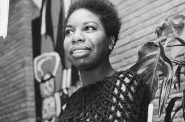Roger Ebert, remembered in Milwaukee
Dominique Noth, a cultural commentator in Milwaukee for decades, knew the late Roger Ebert pre-celebrity.
In the early 1970s, when I was a young film critic for The Milwaukee Journal, I both admired and envied a similarly young colleague in nearby Chicago, Roger Ebert. We met when he became a guest on my Milwaukee TV show, to discuss our mutual love of the films of director Ingmar Bergman.
Ebert, my age, would later emerge as the most influential and important film critic in the world, a statement I make without jealousy. I would argue that his talent actually kept the Chicago Sun-Times in the newspaper game for decades longer than its management did.
When I first knew Roger, it was casual and more a matter of running into each other on the same beat, both young Turks competing to see the same films and interview similar film figures first. I had it harder than he did – they visited Chicago more than Milwaukee.
Behind the scenes, we both were working on management, insisting that newspapers should put cultural criticism center stage and not relegate it to casual snippets between vaudeville and nightclub reviews. In fact, when I first started reviewing films, the Milwaukee Journal like many other papers, didn’t want to give me a title. Ebert’s Pulitzer Prize for film criticism helped break that barrier.
Roger was more get-go famous from the start. He had dabbled in screenwriting with the likes of Russ Meyer, the sexploitation director who remained his good friend. This was before he become a natural and familiar presence on national TV with tag-team partner Gene Siskel of the Chicago Tribune. (By the way, Larry Dieckhaus, who often produced their show, was the personable 20th Century Fox representative who set up screenings and interviews. He frequently sought to put the two of us together because of like interests.)
So Roger knew my work as I knew his – it was a natural progression. I moved into local television though public TV with the blessings of Journal Communications, first as a correspondent on film issues for a magazine show called Metrospect, where I mimicked movie camera techniques to inform viewers. Then Channel 10 asked me to host a series of Ingmar Bergman movies, but I had a condition – an ending segment to discuss and evaluate the films, demonstrate techniques and interview notable thinkers on Bergman, the Swedish film-maker who then was still actively making movies and directing theater.
I chose Ebert as one of my guests. He enthusiastically agreed to drive up and chat live at Channel 10 studios. A few years later, PBS syndicated his show with Siskel. It exploded into commercial TV, and “Sneak Previews” became “At the Movies” and then simply “Siskel & Ebert at the Movies.”
Milwaukee was slow to value of films, particularly foreign films. Our Bergman series and our after-talk didn’t blow anyone away. But in a feisty half-hour interview, Ebert and I agreed and disagreed on the meanings and value of Bergman’s films and debated which would last in the public eye. Looking back, I think we were wrong on some films but right on the impact and weight of Bergman.
I watched over the years as Ebert became a media marvel but remained a tireless worker, the most prolific writer I ever met, and an eager and enthusiastic debater. As a sidelight, I can personally testify that the rivalry as well as the friendship between him and Siskel was genuine. Gene, also a friend, was deeply jealous of Ebert’s knowledge of film mechanics. When I taught a film class showing movies and inviting guest lectures at UWM in the 1980s, I had absolutely no trouble asking Siskel to speak but he insisted on “pulling an Ebert.” He studied up on Martin Scorsese. When we showed Mean Streets, he insisted on showing segments of the film and discussing editing and camera movement. It was almost a “So there, Roger!” moment – and one reason, I suspect, Ebert declined to come in for a later lecture. He played second fiddle to no one.
I have been moved for years by Ebert’s courage in facing cancer. Like most Americans, I was at first conflicted about the frozen mask that became his public face and then convinced by his open arguments that Americans need to face the handicapped directly.
A persistent intellectual love of films underpinned Roger Ebert’s writing. He truly loved cinema and analysis. His life reflects the ultimate power of critical and personal bravery whatever the times and trends. He kept the value of art foremost, handled celebrity as it came and insisted on the importance of opinion. I saw it 40 years ago in the studio and I saw it again when his death was announced April 4.
Dominique Noth was a film and theater critic and then features senior editor during a long career at the Milwaukee Journal and then the Journal Sentinel. He recently retired as editor of the Milwaukee Labor Press but continues to write on politics and culture.
Movies
-
Milwaukee Film Festival Returns in April
 Mar 27th, 2024 by Sophie Bolich
Mar 27th, 2024 by Sophie Bolich
-
Nina Simone’s Summer of Soul
 Nov 29th, 2022 by John Sieger
Nov 29th, 2022 by John Sieger
-
The Surprise Pick for Best Picture
 Mar 22nd, 2022 by Dominique Paul Noth
Mar 22nd, 2022 by Dominique Paul Noth


















What a great perspective on such a well-known man, from someone writing about the same subject during the same era! Thank you for this important testimonial to, obviously, a very courageous person.
A great testimonial to a courageous man by someone trying to write about film and culture during the same era! Thank you!
Sorry, thought my first comment hadn’t gone through!